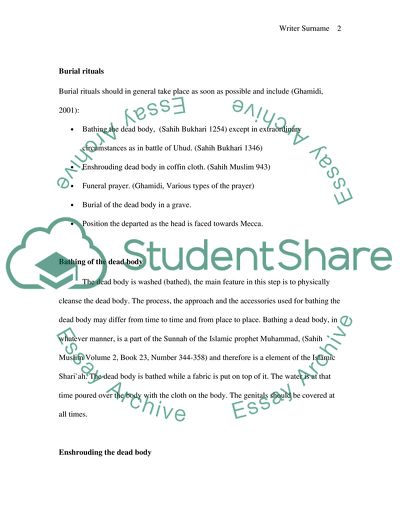Cite this document
(Rules and Regulations Regarding the Burial Rites in Islam Term Paper, n.d.)
Rules and Regulations Regarding the Burial Rites in Islam Term Paper. https://studentshare.org/religion-and-theology/1713291-islamic-studies-fiqh-of-worship-1-the-burial-rites-in-islam-according-to-the-quran-and-sunnah
Rules and Regulations Regarding the Burial Rites in Islam Term Paper. https://studentshare.org/religion-and-theology/1713291-islamic-studies-fiqh-of-worship-1-the-burial-rites-in-islam-according-to-the-quran-and-sunnah
(Rules and Regulations Regarding the Burial Rites in Islam Term Paper)
Rules and Regulations Regarding the Burial Rites in Islam Term Paper. https://studentshare.org/religion-and-theology/1713291-islamic-studies-fiqh-of-worship-1-the-burial-rites-in-islam-according-to-the-quran-and-sunnah.
Rules and Regulations Regarding the Burial Rites in Islam Term Paper. https://studentshare.org/religion-and-theology/1713291-islamic-studies-fiqh-of-worship-1-the-burial-rites-in-islam-according-to-the-quran-and-sunnah.
“Rules and Regulations Regarding the Burial Rites in Islam Term Paper”. https://studentshare.org/religion-and-theology/1713291-islamic-studies-fiqh-of-worship-1-the-burial-rites-in-islam-according-to-the-quran-and-sunnah.


